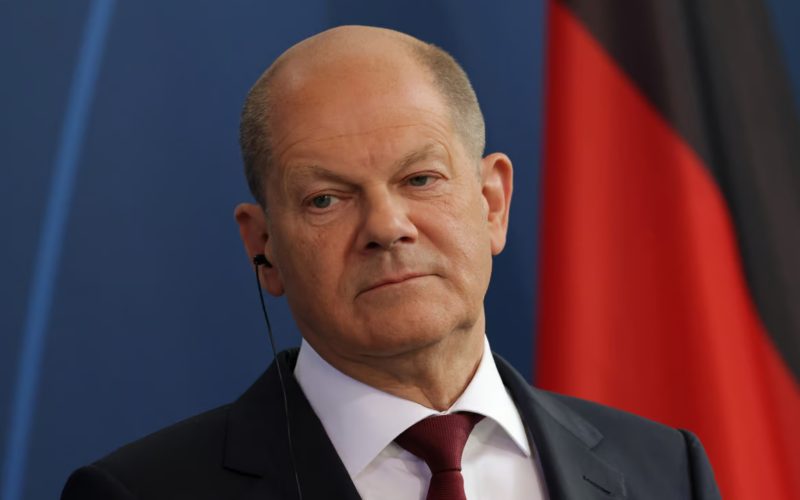German Chancellor Olaf Scholz is facing increased pressure after the far-right Alternative for Germany (AfD) made significant gains in the European Union election on Sunday, according to preliminary results. Despite several controversies surrounding the party, the AfD secured 15.9% of the vote, surpassing Scholz’s Social Democratic Party (SPD) and its coalition partners, the Greens and the Free Democratic Party (FDP).
The SPD saw a decline from their 2019 performance, obtaining only 13.9% of the vote. The Greens experienced a sharp drop in support, falling from 20.5% in 2019 to 11.9% in 2024, while the FDP’s share slightly decreased to 5.2%.
In contrast, incremental gains boosted the opposition Christian Democratic Union (CDU) to become the strongest party, securing 23.7% of the vote.
These results pose a serious challenge to Scholz’s government, which has been grappling with economic difficulties, budgetary issues, and growing concern over the popularity of the far-right. Nationally, the AfD had recently overtaken the SPD, becoming the second most popular party in general election polls.
The AfD’s rise comes despite internal controversies, including being expelled from the Identity and Democracy (ID) alliance in the EU Parliament. This followed controversial remarks by Maximilian Krah, the AfD’s lead candidate for the EU Parliament, about the Nazi SS. Additionally, Krah’s employee was arrested on allegations of espionage for China, and Petr Bystron, the AfD’s second-in-line, faced bribery and money laundering accusations linked to Russia. Both Krah and Bystron were barred from campaigning by their party.
Marcel Fratzscher, president of the German Institute for Economic Research, noted the destabilizing impact of the election results on the current coalition. “The result shows the weakness of the ruling coalition,” he told CNBC, highlighting the already fragile state of Scholz’s government.
Despite the setbacks, it appears unlikely that Scholz will emulate French President Emmanuel Macron’s decision to dissolve parliament and call for new elections. Holger Schmieding, chief economist at Berenberg, suggested that the coalition would continue to operate despite potential further losses in upcoming regional elections. “None of the three parties in the current coalition has anything to gain from early elections,” Schmieding remarked.
The AfD’s success marks a notable shift in the political landscape, reflecting growing discontent with the current government amid rising far-right sentiment in Europe.








